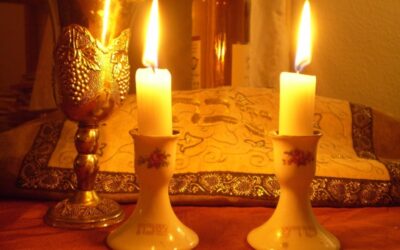I didn’t recognize the number on my call display, but it was local so I answered the phone. I expected a wrong number, but instead a cheerful female voice said, “Thank you so much for writing that article in the Faith Forum about Mr. Minenberg. It really touched me, and she went on to tell the story of how her husband’s family immigrated to Canada and anglicized their name to blend in with their new community. Her husband didn’t change his name, and it created a rift that never healed. She wished he could have read the story and felt proud of his name, but he passed away a few years ago.
I ended the call by thanking her for her story and asking if I could write about it for this blog if I didn’t use her name. She gave me her permission and added, “I am 84 years old, you know. I don’t think I’ll be be reading it on a computer “. We laughed and said goodbye with no plans to reconnect. The next day, I received another call from a different woman who thanked me for the story. She proceeded to tell me her family history and how she kept her family name even though it is difficult to spell.
The fact that these two women took the time to call me made me realize how important our personal stories can be to our readers; and, in this instance, how our names can help us connect with people at a level that goes beyond our everyday encounters.
With that in mind, I called my Mum to find out more about my family history, to get the facts for the history that I already knew, and to share the origins of my name with you. I am glad I did because I learned a lot about my great-great-grandparents; and, that how we get our names can be a very complicated process.
For a start, my family names don’t sound very Jewish or European. Here ís how this happened.
My father’s grandparents immigrated to Scotland from Eastern Europe in the 1850s to escape the pogroms. We don’t know what their last name was. We believe it was Matusiak, or Matiyahu, or Matathias; but, the immigration office changed it to Matthews and so it was passed down and remains to this day.
My mother’s grandparents also immigrated to Scotland from Eastern Europe to escape the pogroms. When they got to the immigration office in Britain, my great-grandfather’s name was too complicated to spell, so the immigration office asked my great-grandmother what her name was. Her name was also too difficult for him to write so he asked her about her father’s name (my great-great grandfather).
His name was Jacob. At that time, people didn’t have last names the same way we do today. Their names were often associated with their professions or physical characteristics. Apparently, there were many Jacobs in the village and my great-great grandfather was known as Jacob the Prince. He either looked like a prince or walked like a prince, we don’t know for certain. What we do know is that the Scottish immigration officer changed my great-grandparents names to Mr. and Mrs. Prince.
I liked this part of my family history so much that I changed my last name to Prince when I was in my late-thirties. My sisters have taken their husband’s names, and brother is happy to carry on the Matthews name to honour our father.
Just to finish up, I’d like to share what happened to my father’s maternal grandfather and his brothers (my father’s grand-uncles). Their name was Boiaskie, but only my great-grandfather had attended school and knew how to spell his name. His brothers came to Scotland at different times and each was given a different last name: Mr. Boyers, Mr. Abraham and Mr. Adams.
As you can imagine, this happened to many people who emigrated from East to West and many people lost touch with their families. I am pleased to see that now more people are keeping their names, even if they are difficult to pronounce. Our names do contain our history and our memories.
Do you have a family name story to share with me?
Living with joy and sadness at the same time
Shabbat candlesticks are a constant reminder to me of the importance of honouring the Sabbath and festivals. The customs we follow remind us of sadness in times of joy; they allow us to remain humble and grateful for all that is good in the world.




